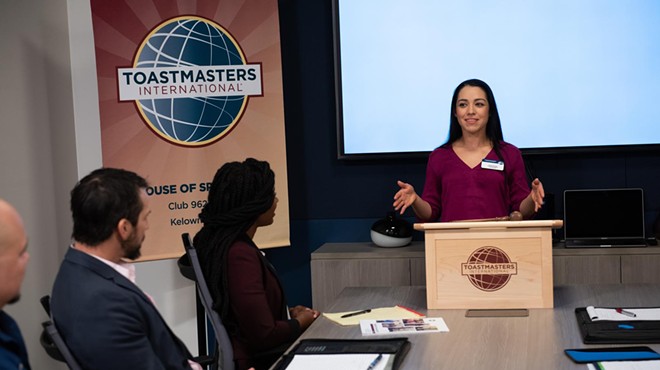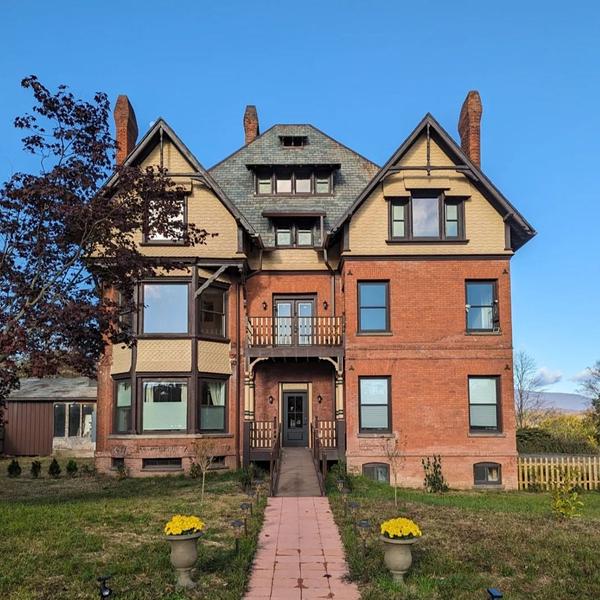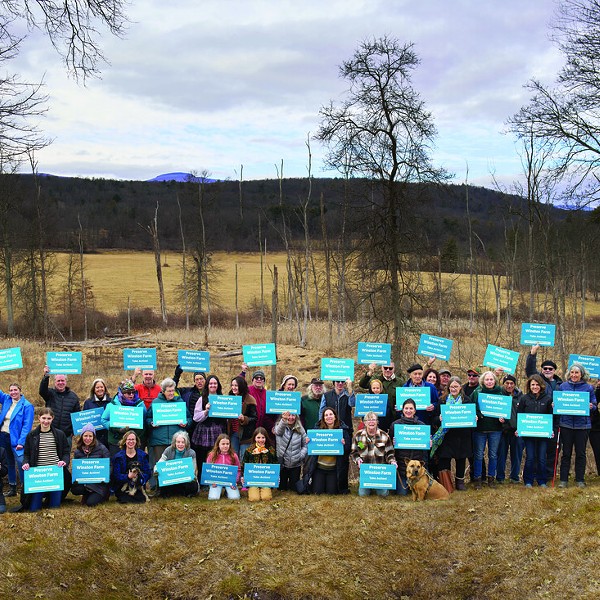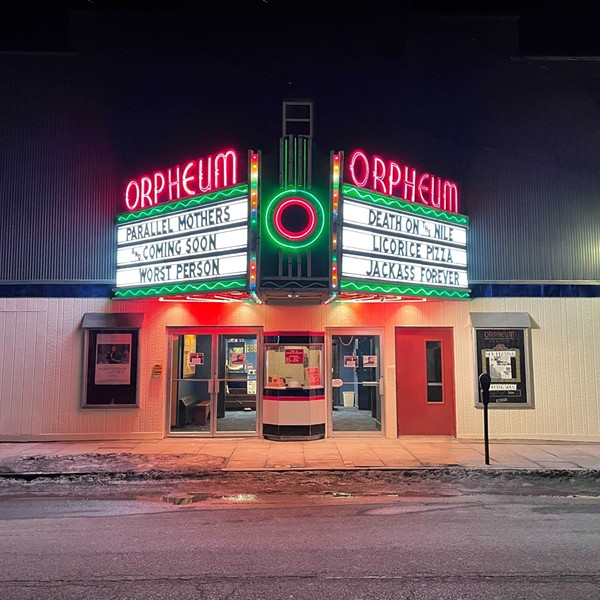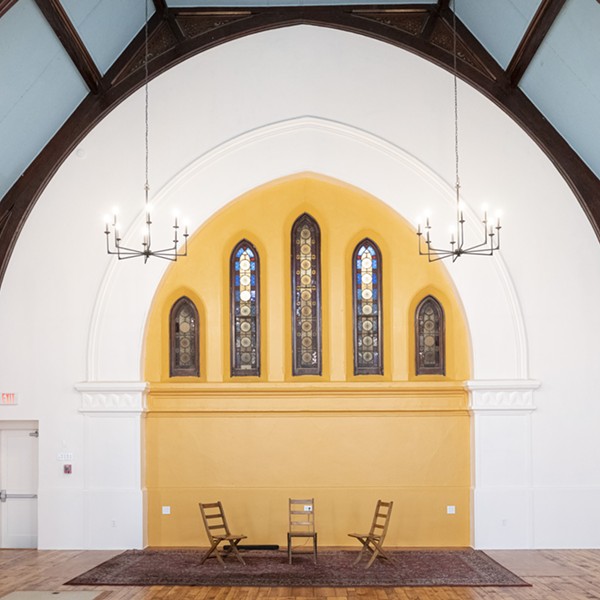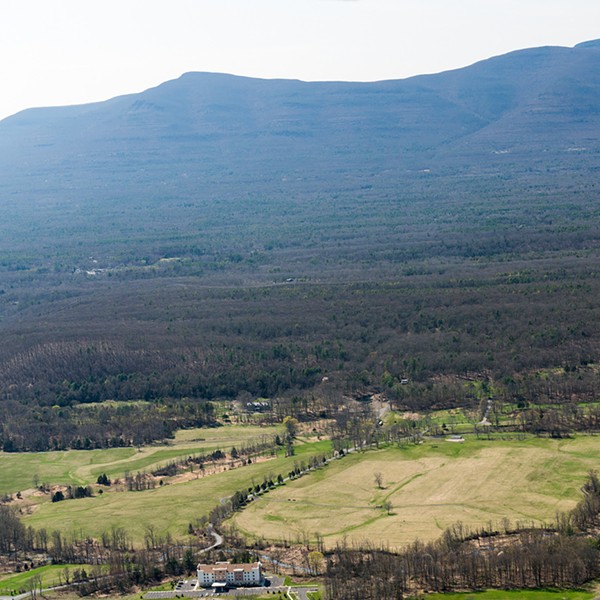Noa Jones is the founder of Middle Way School, an independent progressive school in Saugerties.
Lokah Samastah Sukhino Bhavantu. At one point in June of 2020, not long after George Floyd's murder, a parent suggested that we change the language of a Buddhist prayer that has been recited around the globe for millennia. It means may all beings be happy and free. Every morning at the Middle Way School, our students are invited to open their hearts, summon up their best wishes, and send good vibes out to the world while reciting it in Sanskrit. It's a universal sentiment. You may have chanted it in yoga class.
This concerned parent was triggered by the wording. It sounded too similar to "All Lives Matter," the response some ill-informed people were using in response to "Black Lives Matter." The parent's request presented me with an interesting puzzle. I founded the school with a clear mission to establish a model Buddhist school for children and to explore the potential impact of ancient wisdom on modern education. Where does the BLM movement fit into that mission?
Luckily there are many wise people with huge hearts surrounding the school, including Shugen Roshi, abbot of the Zen Mountain Monastery; Amy Brown-White, a local anti-racist facilitator; the teachers, children, and parents at the school; and Bhutanese lama Dzongsar Khyentse Rinpoche, who is the school's sponsor. It was the latter who said to me, "Dharma doesn't change, culture changes. Dharma is like water in a vessel and culture is the vessel."
This simple statement helped guide the steps we took as a school community in the months that followed.
Before Floyd's death, our top leadership (all white, it should be said) had already started looking at our own identities. We attended White Awake, an excellent course aiming to combat white supremacy by engaging those who've been socially categorized as white in an exploration of whiteness with an aim of creating a more just society. Their lectures and readings caused me to look deeply at my personal history with a Mayflower mother and an Iraqi immigrant father, as well as the history of our country. It changed the way I look at race in America and I realized that stocking our teacher library with books like White Fragility and The New Jim Crow was not going to be enough.
"It is so important to talk about these uncomfortable truths and communicate so the work stays authentic," said Grace Louis, our head of school. By August, Grace had engaged Amy Brown-White for ongoing training and professional development with our staff. We know that white people shouldn't ask black people to help resolve their part in racism, but Amy was open and let us know that she "recognized that the need for a guide is not the same as placing the burden on a community of BIPOC. I saw and felt the intention of the administration at Middle Way and decided to take this journey with them."
We are so lucky that she has. She thinks deeply, carefully, and creatively about our specific community. She took time to read our materials, looking for connections, even going so far as to identify Kunsang Kelden, a Tibetan Culture Advocate and practicing Buddhist, who then spoke to our teachers about how Buddhism and Anti-Racism intersect. Amy quickly understood that the Buddhist aspect of our school was actually a natural fit for anti-racist work and not just because Buddhism promotes kindness and compassion. The Buddhist concepts of non-duality, impermanence, non-judgment, karma, refuge, and waking up from delusion align with anti-racism in some gorgeous ways that she was able to excavate. Seeing the non-dual nature of reality, we understand that grasping or rejecting "otherness" only creates suffering. We study the concept of refuge and explore the ways we can seek and also provide refuge to others with non-judgement.
Amy then did something brilliant. She assigned the teachers to each create a lesson plan that was one part anti-racist and one part impermanence. Impermanence is one of the eight thematic units teachers at Middle Way use as a framework for inquiry.
The teachers ran with it. Most of our teachers do not identify as Buddhist and are learning about the view alongside the students. We focus on aspects of the dharma that are not "religious" or path-oriented, and are more familiar, naturally arising truths like impermanence and harmony.
"The fact of impermanence is what makes everything possible," Shugen Roshi explained when he met with the teachers. "We couldn't evolve or free ourselves without impermanence. Buddhism teaches us that because of impermanence, liberation is possible. We can undo racism, we can undo systems of thought and view and behavior and speech that have been inculcated over hundreds of years that seem fixed but aren't."
Inspired by this challenge, each teacher came up with a series of integrated anti-racist lesson plans. Kindergarteners made collages inspired by the murals of Harlem by Romare Bearden, and fourth graders wrote bios on Marley Dias, who started the #1000BlackGirlBooks initiative. Our movement teacher wrote a lesson plan around Alvin Ailey's Revelations. During social-emotional sessions, teachers invite children to talk about their feelings about race, discrimination, and fairness in age-appropriate ways. Through these activities and the many books we have that feature people of color, the children are guided to view race through a lens of joy and community and to feel comfortable discussing skin color respectfully, in a safe and nonjudgmental environment.
Parallel to our work as administrators and teachers, an impassioned, parent-led anti-racist coalition emerged to foster accountability and transformation. They meet weekly for book club, workships, and somatic and mediation practice, and proposed several actions for our administration to take, including setting up an equity fund to offer tuition assistance for BIPOC families, which we have done. Their mission statement reads, in part: "As parents we support one another in practicing anti-racist parenting and developing home cultures that actively discuss and dismantle racist beliefs and practices. Our commitment is ongoing and reflects our desire to see Middle Way School flourish as a learning community dedicated to collective liberation and justice."
Group work around a sensitive issue is always challenging, there are sure to be blindspots and bruises to navigate. "I feel that we are prepared to struggle through certain parts of anti-racism work and to mess up sometimes," said one parent. "We feel prepared to create a plan for repair when that happens. We want to be accountable to each other."
Our aspiration is to cultivate an inclusive environment where staff and students feel welcome, where they see themselves reflected in the faces of those around them, and enjoy the richness of diversity. All the while relying on Buddhist wisdom as our foundation. After examining our own blind spots, listening deeply, and wishing to be accountable, in the end...we didn't change the words of the Lokah prayer. We continue to invite everyone to pray for all beings to be happy and free, and if there is someone—or a whole lot of someones—whose suffering is calling out to you, then channel that prayer in their direction wholeheartedly.









